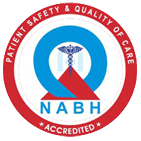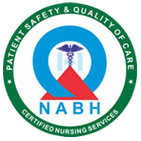FOLLOW THE MISSION HOSPITAL




Jaundice occurs when the skin, sclera (whites of the eyes) and mucous membranes turn yellow. This yellow color is due to a high level of bilirubin, a yellow-orange bile pigment. Bile is fluid secreted by the liver. Bilirubin is formed from breakdown of red blood cells.
Sometimes, there may not be symptoms and the condition may be found accidentally. The severity of symptoms depends on the underlying causes and how quickly or slowly the disease progresses.
If you have a short-term case of jaundice (usually caused by infection) you may have the following symptoms:
If your jaundice is not caused by an infection, you may have symptoms such as weight loss or itchy skin (pruritus). If the jaundice is due to pancreatic or biliary tract cancers, the most common symptom you will experience is abdominal pain. Sometimes, you may have jaundice occurring with liver disease if you have:
Jaundice can be caused by a problem in any of the three phases in bilirubin production.
Before the production of bilirubin, you may have what is called unconjugated jaundice due to increased levels of bilirubin caused by:
During production of bilirubin, some causes of jaundice are:
After bilirubin is produced, jaundice may be caused by:
What is the risk that you will develop jaundice?
During the production of bilirubin, middle-aged women and men, in general, are more affected. People who have hepatitis and drink excessive alcohol are also at increased risk.
Your doctor will diagnose jaundice by checking for signs of liver disease such as:
Urinalysis that is positive for bilirubin indicates the presence of conjugated jaundice. The findings of urinalysis should be confirmed by serum testing. The serum testing will include:
Your doctor will also do an exam to determine the size and tenderness of your liver. He or she may use imaging (ultrasonography and computer tomographic (CT) scanning) and liver biopsy to further confirm diagnosis.
The causes and complications can be treated. However, jaundice usually does not require treatment in adults (it is a more severe problem in infants). Itching, if bothersome, may be eased by cholestyramine.
Since there are many causes of jaundice, it is hard to provide specific prevention measures. Some general tips include:

A Unit Of Durgapur Medical Centre Pvt. Ltd.